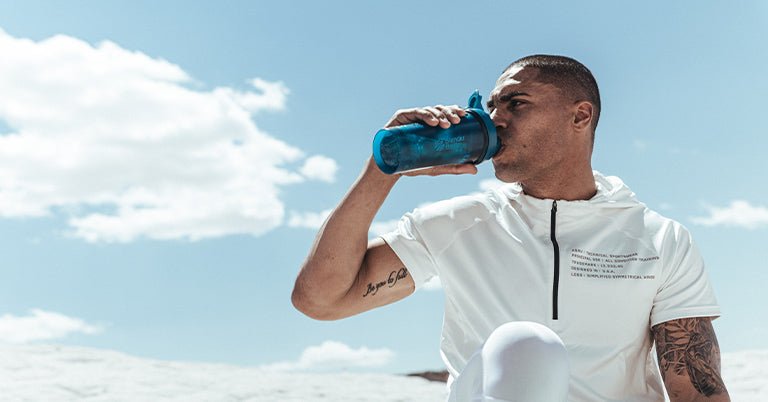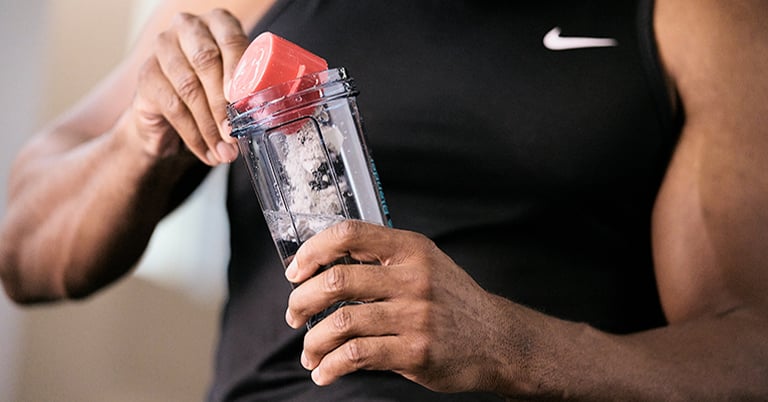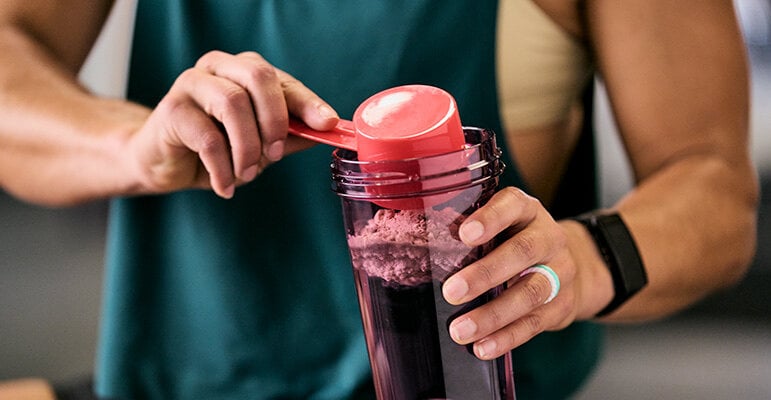What exactly are BCAAs? What do branched-chain amino acids do and how do they impact your fitness goals? More importantly, when is the best time to take BCAAs as part of your exercise routine?
Keep reading to find out. We'll answer all these questions about BCAAs and more to help you determine if taking a branched chain amino acid supplement will benefit your fitness goals.
What Are Branched-Chain Amino Acids?
First, let's start with the basics: what are branched-chain amino acids?
BCAAs are the building blocks of protein. Your body needs these amino acids to rebuild and grow new muscle.
There are a total of 20 different types of amino acids. The body only produces 11 naturally. You need to get the other nine through your diet or supplements.
These nine essential amino acids include:
- Histidine
- Isoleucine
- Leucine
- Lysine
- Methionine
- Phenylalanine
- Threonine
- Tryptophan
- Valine
To maintain muscle mass, your body needs leucine, valine, and isoleucine otherwise known as branched chain amino acids or BCAAs. BCAAs comprise roughly 25% of the body's muscle protein. Unfortunately, your body doesn't make these aminos on its own meaning you have to get them from food or supplementation.
Leucine is key for muscle protein synthesis and preventing muscle catabolism. During exercise, leucine diminishes. You need to replace it through your diet or supplementation. Leucine helps stimulate protein synthesis, allowing the body to build more muscle. It also inhibits the breakdown of muscle tissue.
Accomplishing Your Fitness Goals: Why Take BCAAs?
How exactly will BCAA supplementation help you achieve your fitness goals? There are a few different ways supplementation can support your routine.
For starters, BCAAs can help reduce the fatigue you experience while exercising. BCAAs help limit the entry of tryptophan into the brain. Your brain uses tryptophan to produce serotonin, and too much serotonin can contribute to exercise fatigue.
BCAAs may reduce the muscle soreness and enhance the muscle recovery you experience after working out. After exercising, it's common to experience delayed onset muscle soreness (DOMS). DOMS is a form of exercise-induced muscle damage. It can impact your recovery time and fitness goals.
Taking branched-chain amino acids may help. BCAAs can attenuate exercise-induced muscle damage caused by DOMS. According to this study, a large decrease in DOMS occurs following post-exercise BCAA supplementation.
Consider using branched-chain amino acids to promote muscle building after exercise as well. Protein that contains BCAAs can stimulate protein synthesis in the muscles. It can also keep muscle protein from breaking down to begin with.
If you're planning on a long workout, you may also want to try BCAA supplementation. BCAAs can help provide you with energy. Otherwise, glucose (the main energy source for your muscles) levels can drop low.
Amino acids may actually help you burn more fat. In particular, consider combining leucine with glutamine. These aminos may help reduce excessive fat and normalize visceral fat, which can benefit anyone looking to lose extra pounds.
As an added bonus, BCAAs can give your immune cells a boost.
Plus, BCAAs are convenient and portable. You can't carry fish, chicken, or other sources of protein with you all the time. BCAA supplements are easy to store, transport, and digest.
When to Take BCAAs?
Now that you know more about branched-chain amino acids, let's discuss adding them to your routine. When is the best time to take BCAA supplements? The answer may be dependent on your desired benefits.
Should I take Pre-Workout BCAA Supplementation?
Consider taking BCAAs up to 15 minutes before a workout. Try adding 5 to 10 grams to a protein shake to fuel your body and amplify the benefits of your protein drink.
BCAA levels peak about 30 minutes after consumption. Therefore, time your BCAAs to kick in when you'll need them most to maximize their fatigue-reducing benefits. If you take BCAAs before a workout, they'll also act as an additional energy source for your muscles after your glucose is depleted.
Should I take Post-Workout BCAA Supplementation?
Otherwise, consider taking BCAA supplements after your workout, when your body needs protein for building muscle and reducing muscle catabolism. Taking BCAAs after working out can minimize muscle breakdown, reduce muscle soreness, and jumpstart the muscle repair process.
Bottom line, choose when to take BCAAs based on your distinct goals. Taking BCAAs before a workout will delay fatigue and provide your muscles with extra energy reserves. Taking BCAAs afterward will help your body repair, rebuild, and refresh your muscles.
BCAA Tablets Vs. Powder
BCAAs are widely available in both tablet and powder form. Tablets are easy to swallow before and after workouts. Powders are best mixed in with your favorite protein shake or in an electrolyte drink.
Either type of BCAAs will perform the same functions in your body. BCAA powder will flood your muscles with aminos quickly. However, capsules are typically the simplest to transport. The time recommended to take the BCAA supplement will not be impacted by your selection of powder or tablet form.
Whichever type of BCAAs you prefer, consider using a BlenderBottle ProStak shaker bottle, which comes with attached containers to make carrying both powders and pills easy.
Ready to Try BCAAs?
Taking BCAAs is one way to support your fitness goals. In review, amino acids may help suppress the breakdown of muscle protein while stimulating protein synthesis. You can take BCAAs before or after working out to reduce fatigue and help repair your muscles.
Want to experience these benefits for yourself? A BlenderBottle shaker is just the tool to mix perfect protein shakes, BCAAs, or any supplement to fuel your fitness routine. Check out our store today!
FAQ:
1. Are there any potential side effects or drawbacks to taking BCAAs, especially if consumed regularly as a supplement?
While BCAAs are generally considered safe when taken in recommended doses, there may be potential side effects and drawbacks associated with regular consumption. Some individuals may experience nausea, fatigue, or changes in blood sugar levels. It's crucial to consult with a healthcare professional before incorporating BCAAs into your routine, especially if you have pre-existing medical conditions.
2. How do I determine the appropriate dosage of BCAAs for my specific fitness goals and body weight?
Determining the appropriate dosage of BCAAs depends on various factors, including your fitness goals, body weight, and overall diet. A common guideline is to take around 5-10 grams of BCAAs before or after a workout. However, personalized recommendations may vary. Factors such as individual tolerance, intensity of exercise, and overall protein intake should be considered. Consulting with a fitness or healthcare professional can help tailor the dosage to your specific needs and goals.
3. Can I get sufficient BCAAs through my regular diet, or is supplementation necessary for optimal muscle growth and recovery?
While it is possible to obtain BCAAs through a regular diet, supplementation may be necessary for optimal muscle growth and recovery, particularly for individuals with specific fitness goals or dietary restrictions. Foods rich in BCAAs include meat, dairy products, and certain plant-based sources like legumes and seeds. Supplementation can provide a convenient and efficient way to ensure an adequate intake of BCAAs, particularly during periods of increased physical activity or when dietary sources may be limited. Ultimately, the decision to supplement should be based on individual needs and preferences, with guidance from a healthcare or nutrition professional.





Leave a comment
All comments are moderated before being published.
This site is protected by reCAPTCHA and the Google Privacy Policy and Terms of Service apply.